About the PhysChem Forum
We organise regular free-to-attend meetings with a focus on PhysChem in drug development. Our goal is to generate an environment for informed debate and discussion in a non-commercial setting with excellent networking opportunities. We are supported by many "BigPharma" and smaller pharmaceutical development companies through the input of the PhysChem organising committee. To join our exciting meetings please sign up to our e-mail list by dropping an e-mail to "info at physchem.org.uk".
Organising Committee Members
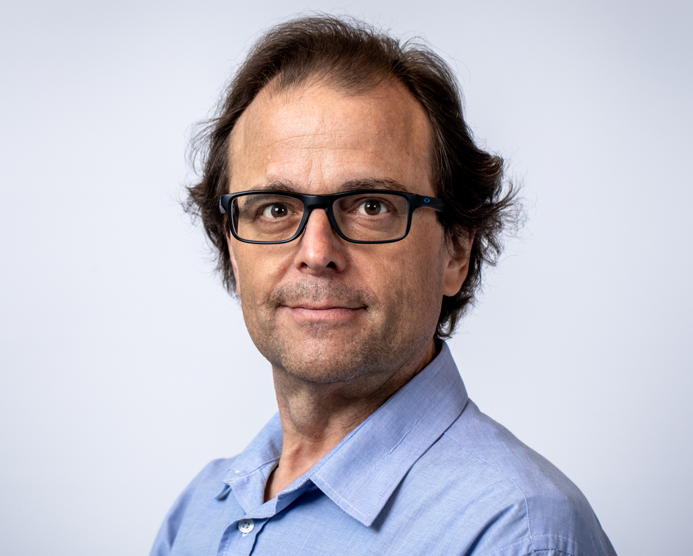
Antonio Llinàs
DMPK Director and Principal Scientist, RIA (Respiratory, Inflammation & Autoimmunity), AstraZeneca Gothenburg, Sweden
Co-founder and chair of the PhysChem forum. Physical-Organic chemist by training with a PhD on Enzyme kinetics and reactivity of b-lactam antibiotics. Antonio spent fifteen years in academia, working in the interface of chemistry and biology and teaching Physical-Organic Chemistry at different universities in Spain and in UK. Before joining AZ in Sweden, he moved to The University of Cambridge (UK) as a senior research Fellow at the Pfizer Institute for Pharmaceutical Materials Science and The Unilever Centre for Molecular Informatics. Antonio joined AZ Göteborg in 2008 as Team Leader for the PhysChem group in the Cardiovascular and Gastrointestinal (CVGI) department. In 2011 he joined the RIA (Respiratory, Inflammation and Autoimmune) R&D as a senior DMPK Design Leader where he is working at present using his broad Physical-Organic Chemistry expertise to advance the RIA portfolio, increase the quality of the CDs and accelerate significantly the optimisation of compounds while shaping the DMPK vision and strategy to keep up with requirements to develop the “New Modalities”. With more than a decade of experience driving drug discovery and development in the pharmaceutical industry Antonio has led over 80 projects from target selection through candidate nomination and early development, spanning multiple therapeutic areas including cardiovascular, metabolic, renal, respiratory, inflammation, antivirals, and autoimmune diseases. His expertise covers both small molecules and emerging modalities such as peptides, PROTACs, and biologics for oral and inhaled delivery. He is a regular presenter at academic and pharmaceutical related conferences. He has authored + 50 publications (including the famous “Solubility Challenges”), several book chapters and 7 patents.
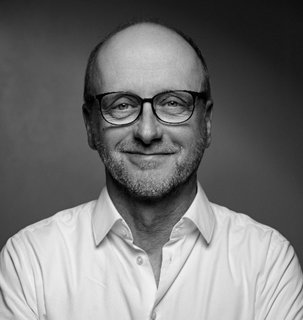
Bjoern Wagner
Senior Scientist, F.Hoffmann–La Roche, Basel, Switzerland
Bjoern is a Senior Scientist at Roche's preclinical research center in Basel, where he has worked for over 30 years. He specializes in the evaluation, development, and application of innovative methods in compound physicochemical profiling, with a strong focus on ADMET-related properties. Bjoern holds a degree in chemistry from the Aalen University of Applied Sciences in Germany. His early research included a diploma thesis at Roche and a pioneering internship on beta-amyloid peptide purification. At Roche, he has developed high-throughput screening methods and carrier-mediated distribution systems to enhance lipophilicity profiling. He supports early drug discovery by integrating experimental physicochemical data with in silico tools to guide compound optimization. Bjoern also serves as a scientific advisor and key contact for external collaborations. He is an active member of two European consortiums focused on the characterization and prediction of physicochemical properties for small molecules and cyclic compounds. Bjoern is passionate about bringing efficiency and precision to early-stage pharmaceutical research.
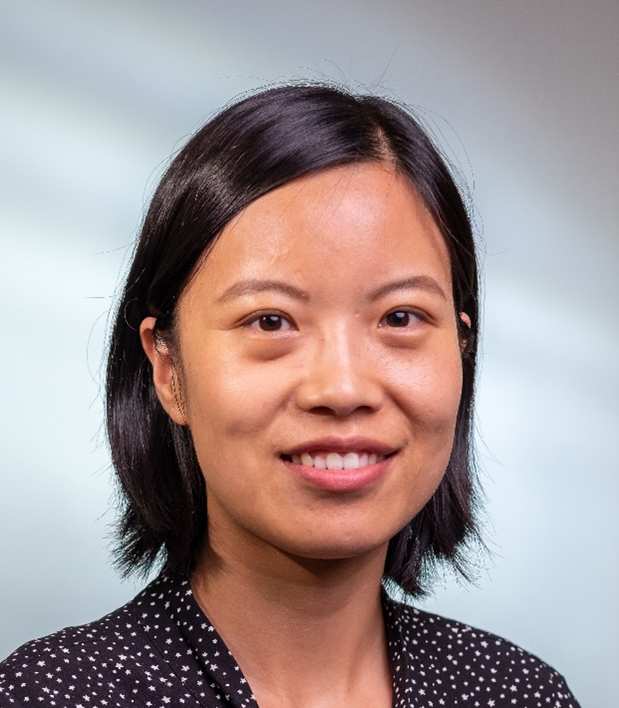
Changhui Chen
Principal Physical Chemist, Syngenta R&D, Jealott's Hill, UKBasel, Switzerland
Changhui Chen obtained both her bachelor's and master's degrees in chemistry. She joined the Warwick Electrochemistry and Interfaces Group in 2011 and obtained her Ph.D. in 2015. Afterward, she expanded her expertise in analytical chemistry as a postdoc working at both the University of Birmingham and the University of Warwick. All her work was published in well-regarded peer-reviewed journals. She joined Syngenta in 2019 and currently serves as a Principal Physical Chemist. In her role, she supports active ingredient innovation through physicochemical characterization and analysis, helping to understand how physical properties of compounds affect their bioavailability. Recently, she has led capability development within the group to improve chromatography measurement efficiency while also supporting ADME (Absorption, Distribution, Metabolism, and Excretion) research and contributing to assay development. In addition to her regular responsibilities, she is actively involved in several academic collaborations, primarily focusing on photostability and permeability research.

Jonathan Burley
Associate Professor in Pharmaceutical Nanotechnology, School of Pharmacy, University of Nottingham, UK
Jonathan is an associate professor in the School of Pharmacy at the University of Nottingham, where he runs a research program focussed on miniaturised screening of solid pharmaceutical formulations. He has a degree and DPhil in Chemistry from the University of Oxford, worked as a post-doctoral research associate in the Materials Science Division at Argonne National Laboratory, Illinois, USA, followed by a Junior Research Fellowship at Jesus College Cambridge. He has worked closely with industry partners throughout his career, tackling problems around materials synthesis and characterisation. His current interests centre around solid drug forms and the use of fluorescence microscopy and high-throughput (100s-1000s of composition), low sample requirement (ca. 100 nano-gram) methods to advance formulation pathway decision-making such as polymer selection for amorphous solid dispersions. Other areas of expertise include Raman spectroscopy, X-ray diffraction, differential scanning calorimetry, and automation. He has published over 70 papers.

Karl Box
Chief Scientific Officer – Europe, Pion Inc. (UK) Ltd
Karl Box has served as Chief Scientific Officer (Europe) at Pion (UK) since 2020. He is involved in scientific and chemistry related functions within the company, as well as supporting commercial activities and business development. His expertise is in the field of physicochemical measurements, where he has forged a successful career in the development of new instrumentation and assays for supporting drug discovery and development.
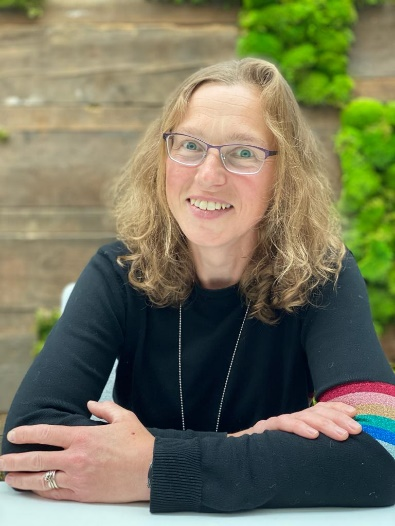
Linette Ruston
Chief Scientific Officer, Seda Pharmaceutical Development and Clinical Manufacturing Services, UK
ADME and Biopharmaceutics specialist with >20 years’ experience in the pharmaceutical industry. Expert in physicochemical, ADME and biopharmaceutics aspects of drug design and pharmaceutical development; applying appropriate in vitro, in silico and in vivo models to inform compound and dose selection, enable material choice, formulation strategy and drive project progression.
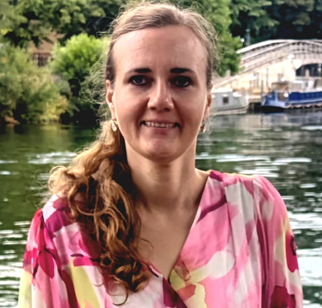
Magdalena Kierkowicz
PhD, CChem, Senior Scientist, UCB Pharma, UK
Magdalena Kierkowicz is a Senior Scientist at UCB Pharma UK and a Chartered Chemist with the Royal Society of Chemistry. She holds an MSc in Chemistry and Physiochemistry of Materials from the University Pierre and Marie Curie in Paris (2012) and earned her PhD Cum Laude in Materials Science from the Autonomous University of Barcelona (2017). Her doctoral research focused on the development of novel therapeutic modalities for cancer treatment. During her PhD, Magdalena expanded her expertise in nanomedicine and organic chemistry as a visiting researcher in the group of Professor Maurizio Prato in Trieste, Italy. In 2018, she joined UCB Pharma, where she now leads the Physical Chemistry Team. Her group plays a pivotal role in the screening, characterisation, and pre-formulation of small molecules, supporting global drug discovery programs through cross-functional collaboration with departments such as Chemistry, CADD, DMPK, Toxicology, and Formulation. Magdalena’s current scientific interests include the development of innovative techniques for characterising molecules in the beyond Rule of 5 (bRo5) chemical space, solid-state characterisation, and the integration of physicochemical parameters into in silico predictive models. She is an active member of both the Royal Society of Chemistry and the Society of Chemical Industry and has co-authored about 15 scientific publications. As strong advocate for diversity, equity, and inclusion, Magdalena completed the United Nations Target Gender Equality Accelerator Programme and champions initiatives that foster inclusive and empowering work environments. She is also engaged in initiatives aimed at inspiring the next generation of scientists, engineers, and innovators.

Shenaz Bunally
Associate Director, Physchem, Analytical Chemistry, Molecular Modalities Capabilities, R&D, GSK, UK
Shenaz earned her bachelor's degree in Analytical and Medicinal Chemistry from the University of Hertfordshire. She brings more than 20 years of pharmaceutical industry experience to her current role as the scientific lead at GlaxoSmithKline. In her position as Associate Director, she develops strategic plans for aligning physicochemical and analytical support with R&D Chemistry priorities. Shenaz has led the development and implementation of high-throughput physicochemical screening assays, crucial for enhancing the developability profile of compounds and building in silico models. She possesses extensive experience in team leadership, project management, and fostering collaborative relationships. Her expertise has been widely recognised through her numerous contributions to external and internal publications and participation at several conferences. She had been honored as a GSK Associate Fellow and maintains active membership in the Royal Society of Chemistry. Additionally, she serves on the organising committee of the Physchem Forum and the scientific committee of the Euroanalysis2025 conference. Demonstrating her dedication to inclusivity and diversity, she had taken on a leadership role as the departmental champion for these important initiatives at GSK. She is deeply committed to knowledge sharing and professional development, taking pride in nurturing scientific talent. As a dedicated champion of mentorship, she has guided many scientists throughout her tenure at GSK and participated in several mentoring and coaching programmes. Originally from Mauritius, she is fluent in both English and French. Beyond her professional pursuits, she maintains an active lifestyle through fitness classes and enjoys intellectual stimulation through board games. Her leadership capabilities, diverse background, coupled with her dedication to fostering an inclusive environment, make her a well-rounded and respected figure in the pharmaceutical industry.
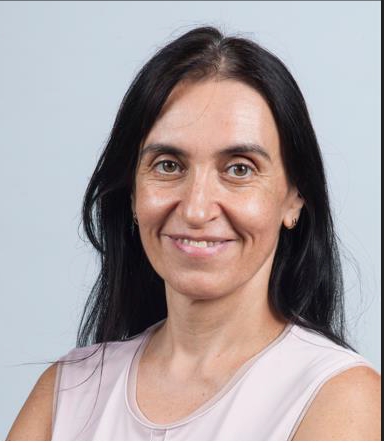
Sonia Espinosa
R&D Senior Scientist, Analytical Chemistry, NCEs Discovery & Early Development, Almirall, Spain
Sonia obtained the European Ph.D. in Analytical Chemistry from the University of Barcelona in Spain. Her thesis and Master were focused mainly on retention of ionizable compounds on HPLC, studying variation of pKa values (ionization constants) of acids and bases and pH values of buffers in acetonitrile/water mobile phases, and setting up retention models in HPLC as a function of pH and solvent composition with acetonitrile. Part of this research was conducted at GSK (Stevenage) working with Klara Valko’s group, where she spent six months and had her first contact with a pharmaceutical company. All that work was published in international recognized scientific journals, mainly Analytical Chemistry and Journal of Chromatography A. Currently, she is a Senior Scientist at Almirall, where she has been working for more than 20 years. Her principal role is the physicochemical characterization of New Chemical Entities (purity, solubility, stability, lipophilicity, pKa determination…), using methods that are continuously being optimized considering new technologies, faster chromatography, lower sample amount, less manipulation… and are also adapted to the needs of the discovery program, if necessary. She also gives support to different departments of the company when issues appear at the early stage of the Discovery process, and she is used to setting up specific studies focused on getting a better understanding of the problem and trying to find a solution, always working in a collaborative way.
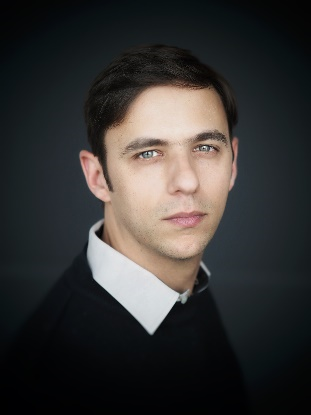
Stephane Rodde
Principal Scientist, Biomedical Research, Global Discovery Chemistry, Analytics and Separation, Novartis, Switzerland
Stephane obtained his BSc degree in Analytical Chemistry from the University of Paris XI in France. His journey as physchem expert started in Bernard Faller’s lab part of the Metabolism and Pharmacokinetics group where he was mainly focused on measuring ionization constants supporting all drug discovery projects from Novartis in Basel. His scope of action expanded to all classical physchem measurements, and he was co-author of multiple papers, partnering with CADD experts in building models and validating QM-based methods. Currently Principal Scientist, Stephane is leading the PhysChem lab in Basel where he has been working for more than 16 years. His main goal primarily focused on applying the solubility diagnosis concept to support projects in identifying the main factor impacting the solubility of their chemical series. For doing this, he focused on automating and optimizing the sample preparation as well as the data analysis, using LC-HRMS. More recently, new modalities came with new challenges and together with his team, he is deploying alternative approaches to characterize these molecules.
